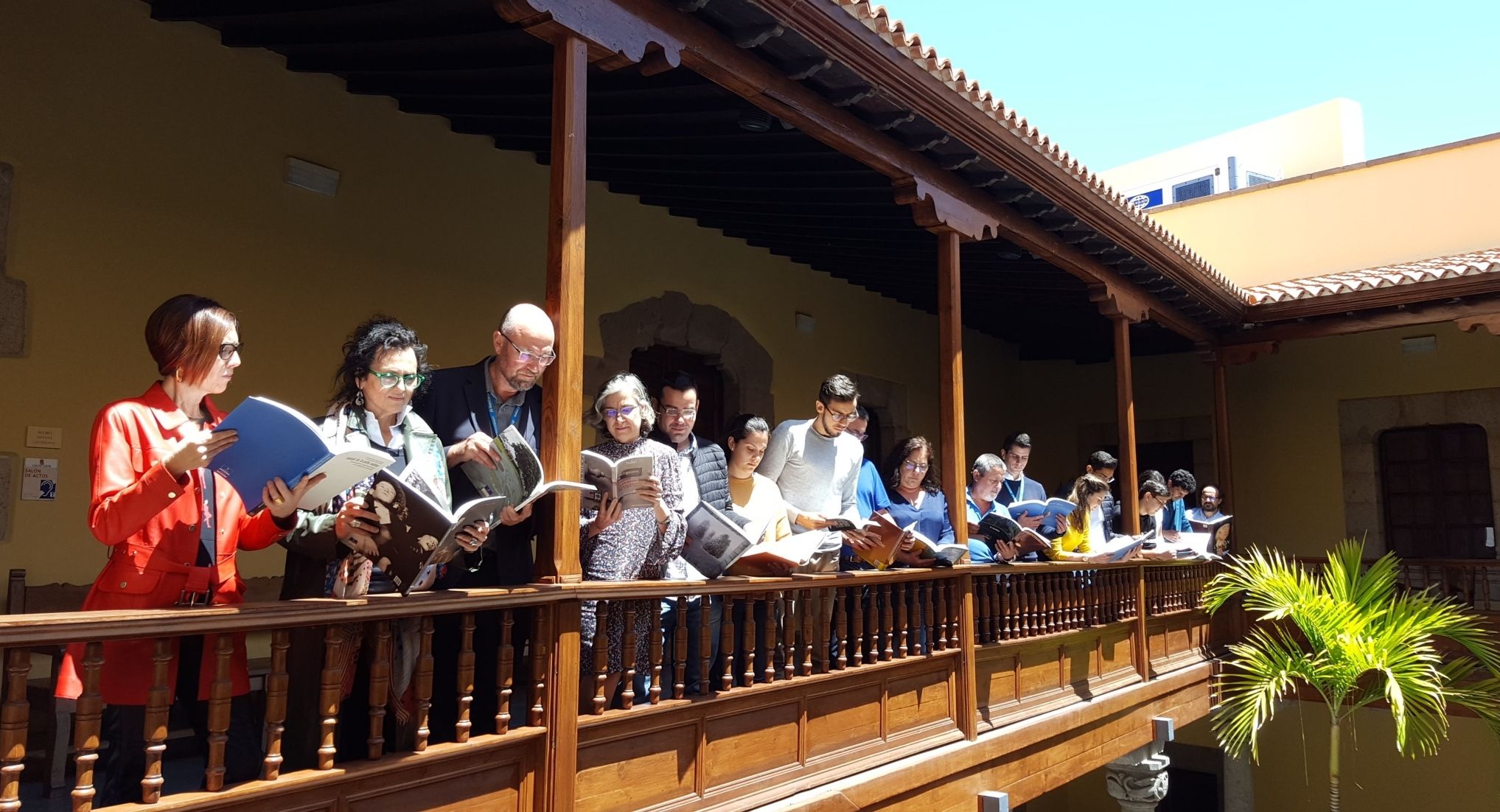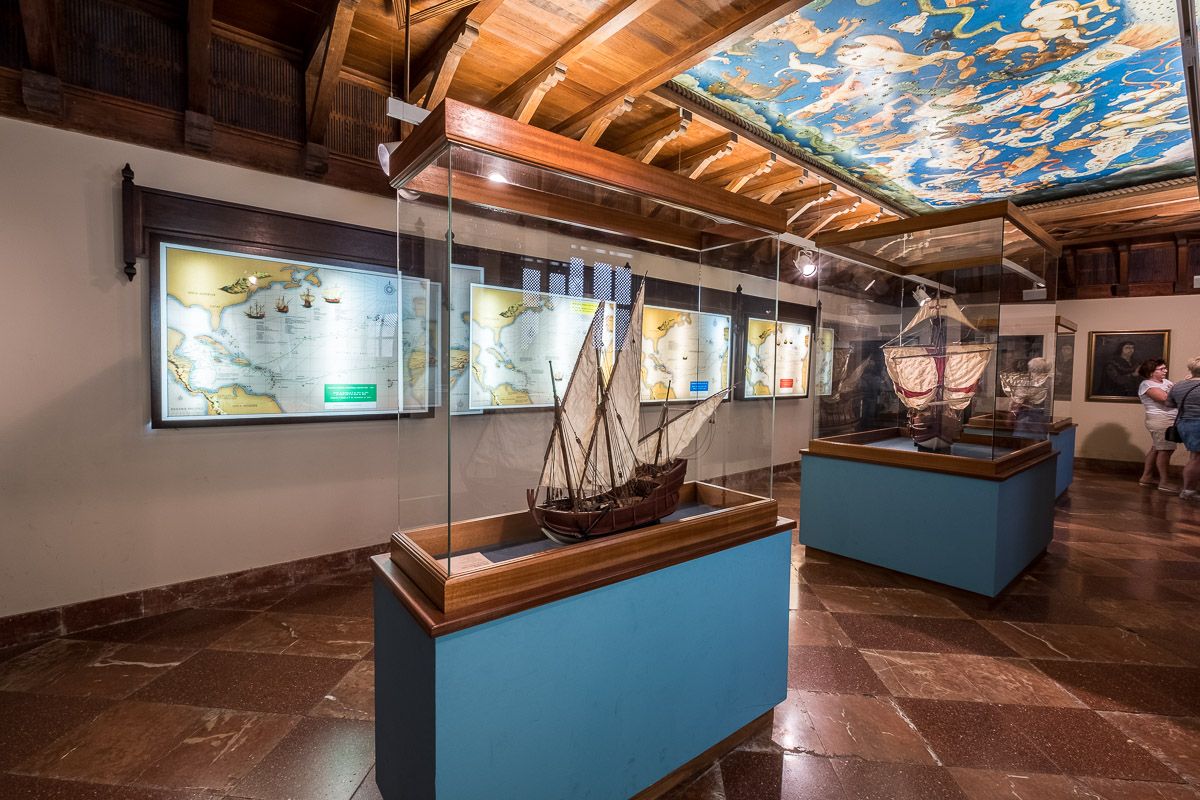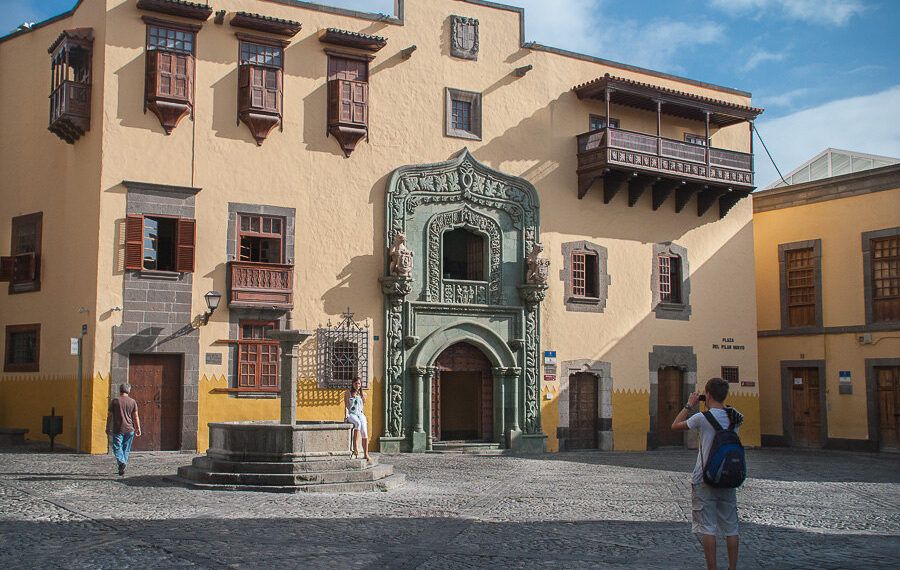A vacation on an island in the middle of the Atlantic Ocean, enjoying its cuisine, nature, and culture, is a trip worth taking. But if you can also learn about the history of our ancestors and even celebrate Shabbat with the local Jewish community, the experience will be unforgettable.
The first stop for any tourist arriving in Gran Canaria is the capital city: Las Palmas de Gran Canaria. Known for its picturesque old quarter, its pedestrian streets of Vegueta and Triana, its museums, and its constant view of the sea, it is the most authentic place to connect with local culture and with the Canary Jewish roots.
In the historic center of the city, surrounded by museums, shops, and theaters, locates the synagogue of the Israelite Community of Las Palmas de Gran Canaria. It is the meeting place of about 30 families, that form the Jewish nucleus of the island. Despite its small size, it has been able to resist assimilation thanks to the determination of its members to keep Judaism alive in the region. The institution celebrates the Jewish holidays and develops educational, cultural, and social programs to practice a full Jewish life.

Despite its small size, the community has managed to resist assimilation thanks to the determination of its members to keep Judaism alive in the region. The institution celebrates Jewish holidays and carries out educational, cultural, and social programs to encourage the practice a fully Jewish life.
Most Jews on the Canary Islands are of Sephardic origin, as the first generations arrived during the previous century from cities in North Africa, a continent that lies adjacent to the archipelago. Many came from Moroccan cities that were then French and Spanish protectorates, such as Tangier, Tetouan, Casablanca, and Alcazarquivir.
Their ancient Sephardic traditions and their attachment to an island that they consider home, blend into the personality of the Canarian Jews. The population can be characterized as being energetic, joyful, and friendly, and they are ready to share with anyone who visits. Thus, the Jewish community opens its doors to tourists who wish to get to know them, explore their history, and experience local Judaism during a Shabbat dinner.
The Jews of the Canary Islands during the Early Modern Period
A visit to the capital city, followed by a tour of the current synagogue in Las Palmas de Gran Canaria, gives visitors the opportunity to explore the various museums housing significant artifacts from the island’s Jewish history.
Due to its strategic location, the Canary Islands have always been a crossroads, a hub of commercial activity, and a melting pot of cultural diversity.
For this reason, there has been a recorded Jewish presence in this territory since at least the 15th century. Indeed, it was a refuge for many of those expelled and persecuted by the Inquisition, and many managed to continue practicing their customs in secret with less persecution than on the Iberian Peninsula.

One of the most relevant museums in this regard is the Casa de Colón, where Christopher Columbus stayed during his time on the island. The museum offers insight into the contributions of various Jewish professionals, such as cartographers Martin Behaim and Abraham Cresques, particularly with regard to Columbus’s voyage to the Americas.
Despite the difficulty of practicing Judaism, both then and now, the Jewish presence in Gran Canaria has a long history, one about which little is known worldwide. Discover and experience this story on your next trip to the amazing Spanish island of Gran Canaria.
Casa Colon Museum
Schedule:
Monday to Saturday from 10:00 a.m. to 6:00 p.m.
Sundays and holidays from 10:00 a.m. to 3:00 p.m.
Prices:
General entrance: 2 euro
Minors under 18: free
Sundays: free entry day
Address: Colón street 1, 35001, Las Palmas de Gran Canaria
Phone: +34 928 312 373
Email: ca*******@*********ia.com
Website: casadecolon.com









